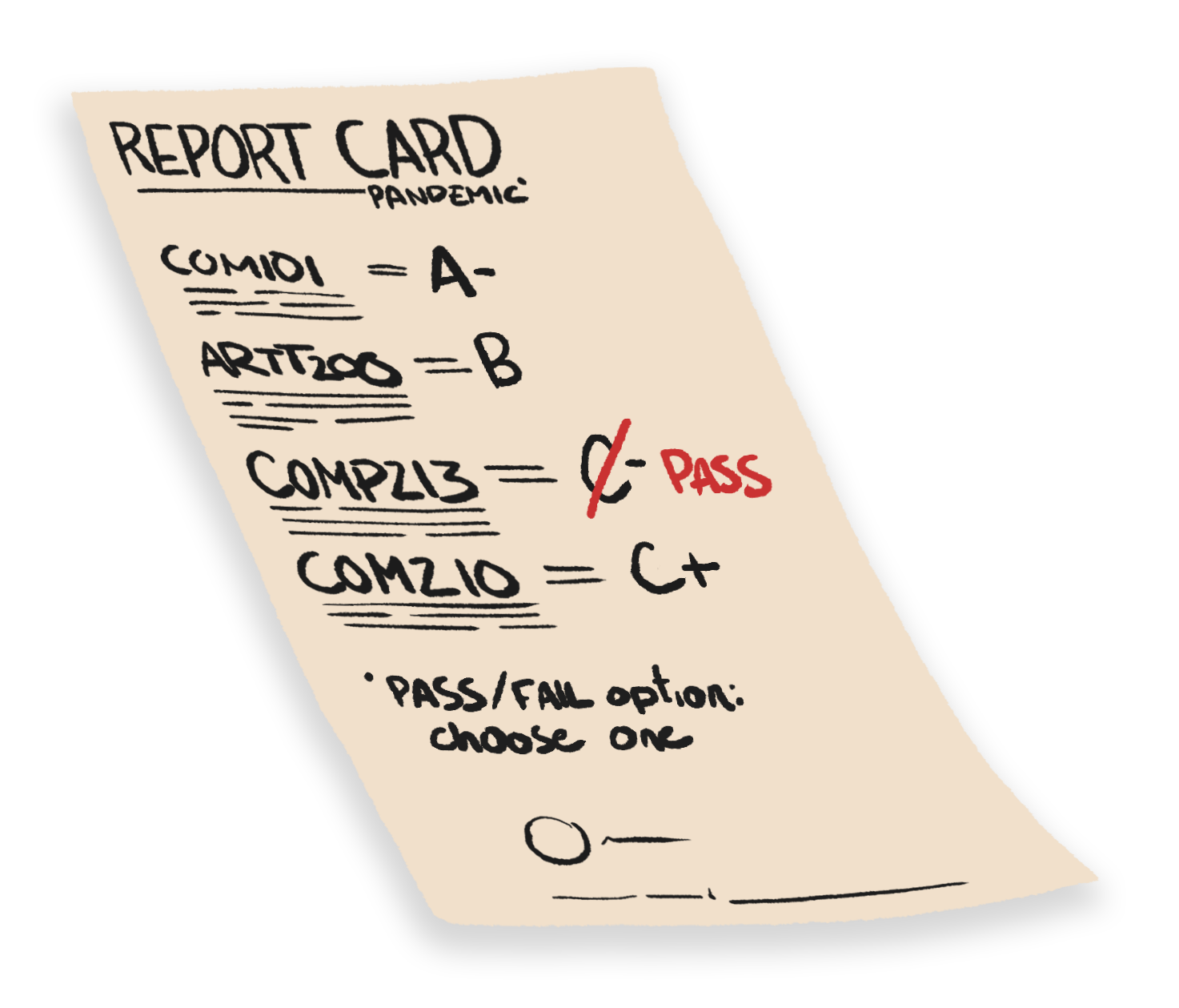The pass/fail option is back with some changes
As the winter semester begins and Concordia students return to classes, the pandemic’s second wave remains in full force. To help students cope through the stress of the pandemic, Concordia University has reintroduced a pass/fail option, which will be available for the fall 2020 and winter 2021 semester.
The option gives students the ability to change one of their grades in an eligible class from a standard letter grade, to a PASS grade. Choosing a pass will allow students to take a grade which does not affect their GPA.
In a statement made to The Concordian the university said, “Concordia has developed a set of compassionate measures to support students … including a pass/fail option for one eligible course for both the fall 2020 and winter 2021, the automatic conversions of eligible F grades to a DISC notation and simplified and flexible final exam deferral requests.”
The University introduced a similar option during the winter 2020 semester with one large difference: students could take advantage of the pass/fail option with as many eligible classes as they liked. But it was only intended as a measure to ease students through the sudden change to virtual classes.
“The unforeseen disruption brought on by the start of the pandemic in March 2020 led to exceptional measures following the unanticipated change from in-person to remote learning and exams in the middle of the winter 2020 term,” said Concordia’s statement.
Students are glad to see pass/fail return, but wish they knew about it at the beginning of the fall term.
“I’m glad that they gave the option but I wish there was more of a comprehensive plan before the end of term,” said Claire Dyment, a second year psychology student.
“I wish they had announced it and seen this was going to happen at the beginning of the term. A lot of people thought they were gonna do bad in certain classes so they dropped them, but they could have just passed.”
The initial removal of the pass/fail option was disappointing to many students, considering classes were still being held online. When a number of referendum questions were posed to students in a Concordia Student Union by-election last November, students were asked if they would like to see the pass/fail option return while classes remained online. With a 17.8 per cent turnout of Concordia’s student population voting to bring back pass/fail, 91.5 per cent of students taking part voted yes.
The change to only allowing one pass per term seems to be a decision that some students think is fair.
“I think one class is pretty good, if we had too much wiggle room kids will start taking advantage of it,” said Dyment.
Some were also worried about how being able to pass/fail all of their classes would affect their future.
“I personally think it’s difficult to say if it’s a good thing or not … we haven’t had the conversation about how pass/fail will impact students in the long term, if having a bachelor’s degree that has a lot of pass/fail courses in it will hinder your chances at employment … or graduate school in the future.” Said Aya Chkirate, a first year finance student at Concordia.
“But at the same time I think it’s a good thing for students. In the short term it lets students focus on courses that might be more difficult.” Chkirate continued.
Students will be able to exercise the pass/fail option for the fall 2020 term as of Jan. 18 on their MyConcordia page. The deadline to request a pass is Jan. 22, 2021 at 5 p.m EST.
Graphic by Taylor Reddam
